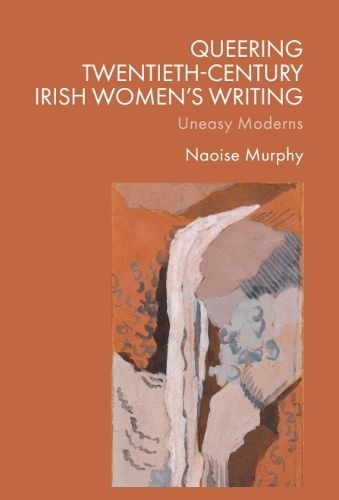Readings Newsletter
Become a Readings Member to make your shopping experience even easier.
Sign in or sign up for free!
You’re not far away from qualifying for FREE standard shipping within Australia
You’ve qualified for FREE standard shipping within Australia
The cart is loading…






Bringing together a group of untimely, queerly-oriented writers Dorothy Macardle, Kate O'Brien, Elizabeth Bowen and Molly Keane this book unsettles the conventional narratives of modern Irish culture. Despite attempts to impose a linear narrative of progress, feel-good accounts are clearly inadequate to the realities of contemporary Ireland. Guided by a queer refusal to move on from bad feelings, Naoise Murphy disrupts common-sense narratives of modernisation, gender, sexuality and race in the postcolonial state. Lingering with unease and discomfort in the work of mid-twentieth-century women writers and the spaces they occupied, this book pays close attention to inadmissible feelings of loss, anxiety, hauntedness and melancholia. By embracing discomfort, it moves towards a less idealising form of queer studies that is more responsive to the complexity of queer history, and offers a new story of Irish culture in the twentieth century.
$9.00 standard shipping within Australia
FREE standard shipping within Australia for orders over $100.00
Express & International shipping calculated at checkout
Bringing together a group of untimely, queerly-oriented writers Dorothy Macardle, Kate O'Brien, Elizabeth Bowen and Molly Keane this book unsettles the conventional narratives of modern Irish culture. Despite attempts to impose a linear narrative of progress, feel-good accounts are clearly inadequate to the realities of contemporary Ireland. Guided by a queer refusal to move on from bad feelings, Naoise Murphy disrupts common-sense narratives of modernisation, gender, sexuality and race in the postcolonial state. Lingering with unease and discomfort in the work of mid-twentieth-century women writers and the spaces they occupied, this book pays close attention to inadmissible feelings of loss, anxiety, hauntedness and melancholia. By embracing discomfort, it moves towards a less idealising form of queer studies that is more responsive to the complexity of queer history, and offers a new story of Irish culture in the twentieth century.